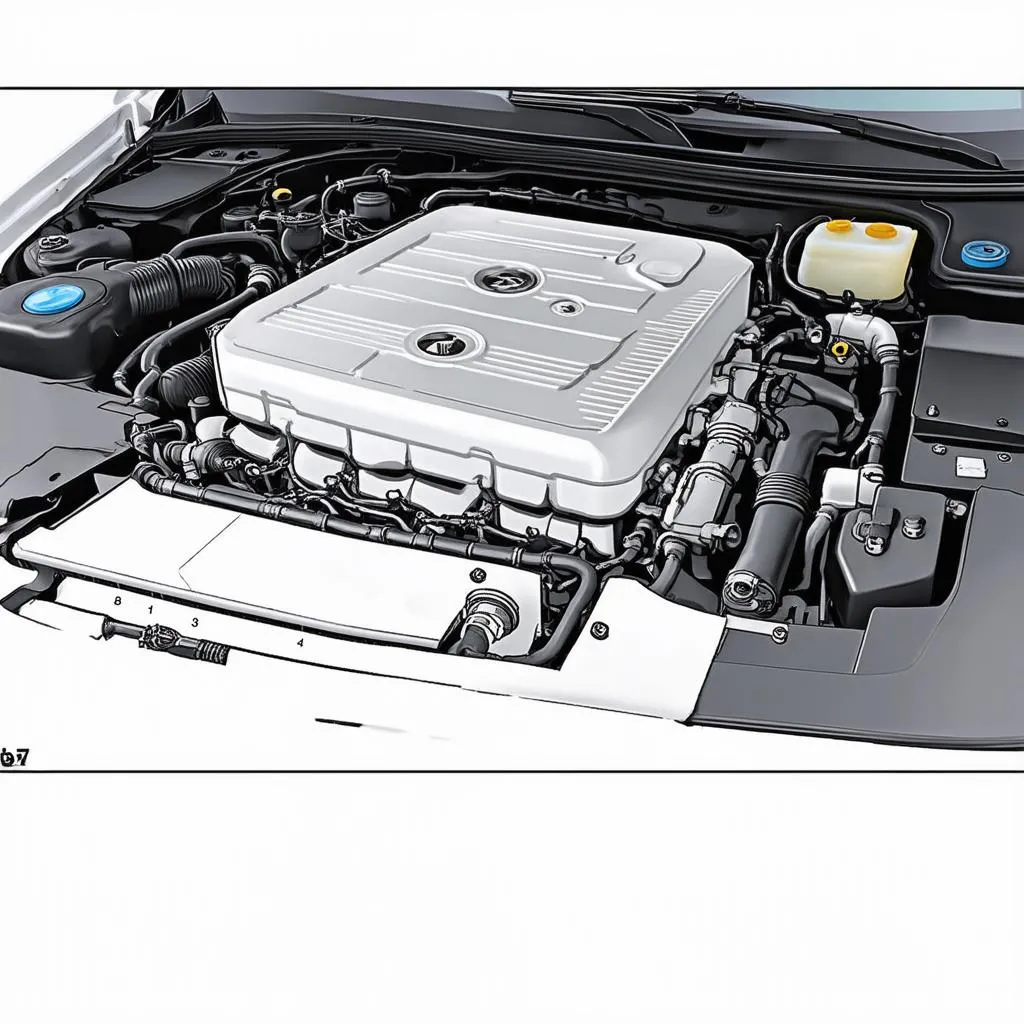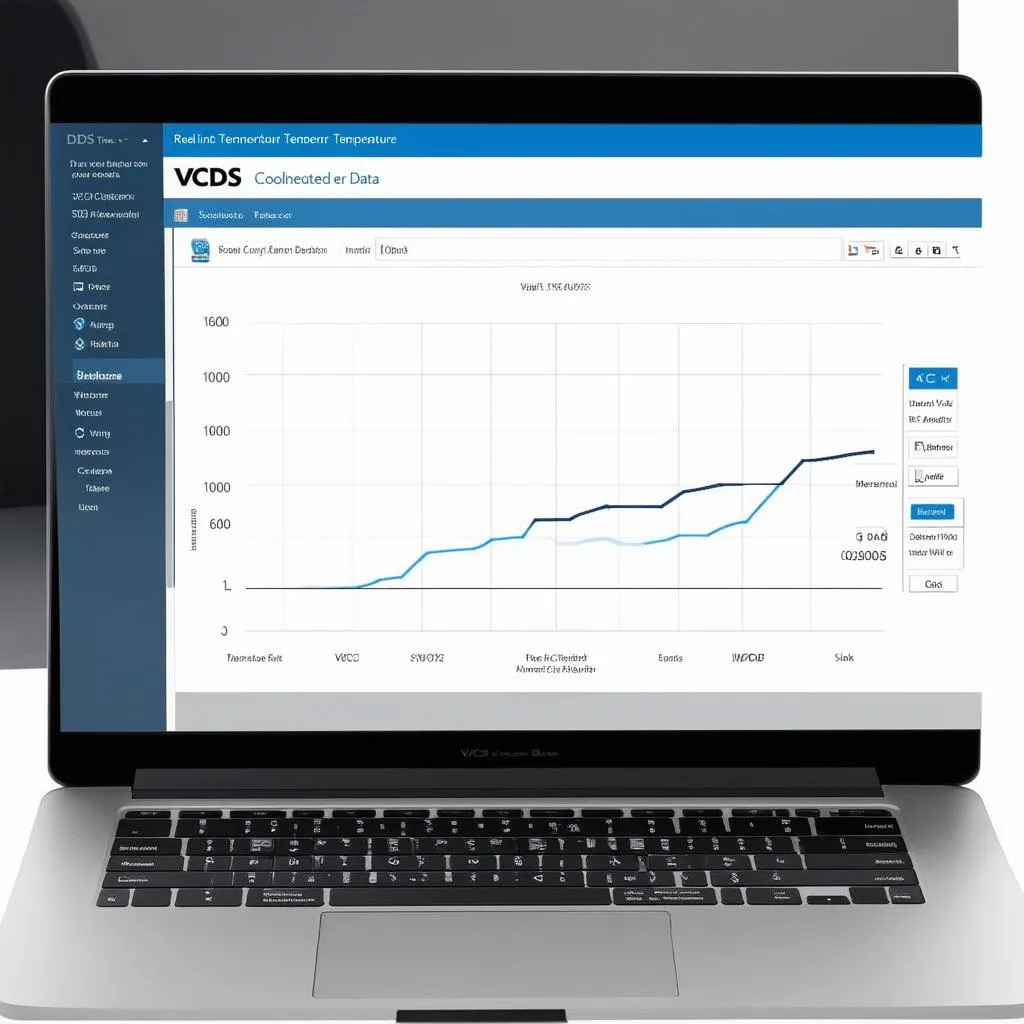As a seasoned automotive technician, you know that a vehicle’s cooling system is crucial for maintaining optimal engine temperature. A malfunctioning cooling system can lead to overheating, catastrophic engine damage, and costly repairs. This is where the VCDS (Vag-Com Diagnostic System) and its ability to monitor the “coolant temp measuring block” become invaluable for accurate diagnostics.
What is the VCDS Coolant Temp Measuring Block?
The VCDS is a powerful diagnostic software used by professionals and enthusiasts to access and analyze the data from various electronic control units (ECUs) within Volkswagen Audi Group (VAG) vehicles. The “coolant temp measuring block” refers to a specific data point within the engine control module (ECM) that provides real-time coolant temperature readings.
By accessing this measuring block, technicians and informed DIYers can obtain critical information about the engine’s cooling system performance. This data helps diagnose issues like faulty thermostats, malfunctioning coolant temperature sensors, or even potential head gasket problems.
The Importance of Monitoring Coolant Temperature
Maintaining the engine within its optimal temperature range is vital for several reasons:
- Performance: An engine operating at the correct temperature delivers optimal power and fuel efficiency.
- Emissions: Proper combustion, directly influenced by temperature, minimizes harmful emissions.
- Engine Longevity: Overheating can lead to warped cylinder heads, damaged gaskets, and ultimately, engine failure.
Using VCDS to Diagnose Cooling System Issues
The VCDS software provides a user-friendly interface to access the coolant temp measuring block. Here’s how it aids in diagnosing common cooling system problems:
1. Inaccurate Temperature Readings:
If the gauge on your dashboard displays erratic temperatures or doesn’t match the reading from the VCDS, it might indicate a faulty coolant temperature sensor.
Expert Insight: “Always cross-reference the dashboard gauge with the VCDS reading for accurate diagnostics,” says Michael Thompson, author of “Advanced Automotive Diagnostics.” “Discrepancies can pinpoint sensor issues.”
2. Engine Overheating:
If the VCDS shows consistently high coolant temperatures, it could point towards problems like:
- Stuck Thermostat: A thermostat that fails to open prevents coolant circulation, causing overheating.
- Clogged Radiator: Restricted coolant flow due to a clogged radiator can also lead to overheating.
- Faulty Water Pump: A malfunctioning water pump hinders coolant circulation and contributes to overheating.
3. Erratic Temperature Fluctuations:
Rapid fluctuations in coolant temperature, as shown by VCDS, might indicate:
- Air Pockets in the Cooling System: Trapped air pockets interfere with proper heat transfer.
- Head Gasket Issues: In severe cases, a blown head gasket can cause exhaust gases to mix with the coolant, leading to erratic temperature behavior.
 Cooling System Diagram
Cooling System Diagram
FAQs about VCDS and Coolant Temp Measuring Block
Q: Can I use VCDS to test my thermostat?
A: While not a direct test, observing the coolant temperature rise using VCDS as the engine warms up can give you an indication of whether the thermostat is opening and closing at the expected temperatures.
Q: What is a normal coolant temperature range?
A: Most vehicles operate within a range of 195°F to 220°F (90°C to 104°C). However, it’s crucial to consult your vehicle’s specific service manual for the recommended range.
Q: My VCDS isn’t connecting to my car. What should I do?
A: Ensure you have the correct VCDS interface compatible with your vehicle model and that the drivers are correctly installed. Refer to the VCDS documentation or contact their support for assistance.
Cardiagtech: Your Partner in Automotive Diagnostics
For professional-grade diagnostic tools and software, Cardiagtech offers a wide selection of products, including the renowned VCDS system. Explore their website to discover solutions tailored for various vehicle makes and models.
 VCDS Software Interface
VCDS Software Interface
Conclusion
Understanding the VCDS coolant temp measuring block is paramount for anyone involved in automotive diagnostics and repair. This data, coupled with a thorough understanding of cooling system principles, empowers you to quickly identify and address issues, ensuring optimal vehicle performance and longevity.
Need expert assistance with your vehicle diagnostics? Connect with Cardiagtech for industry-leading tools and support.


